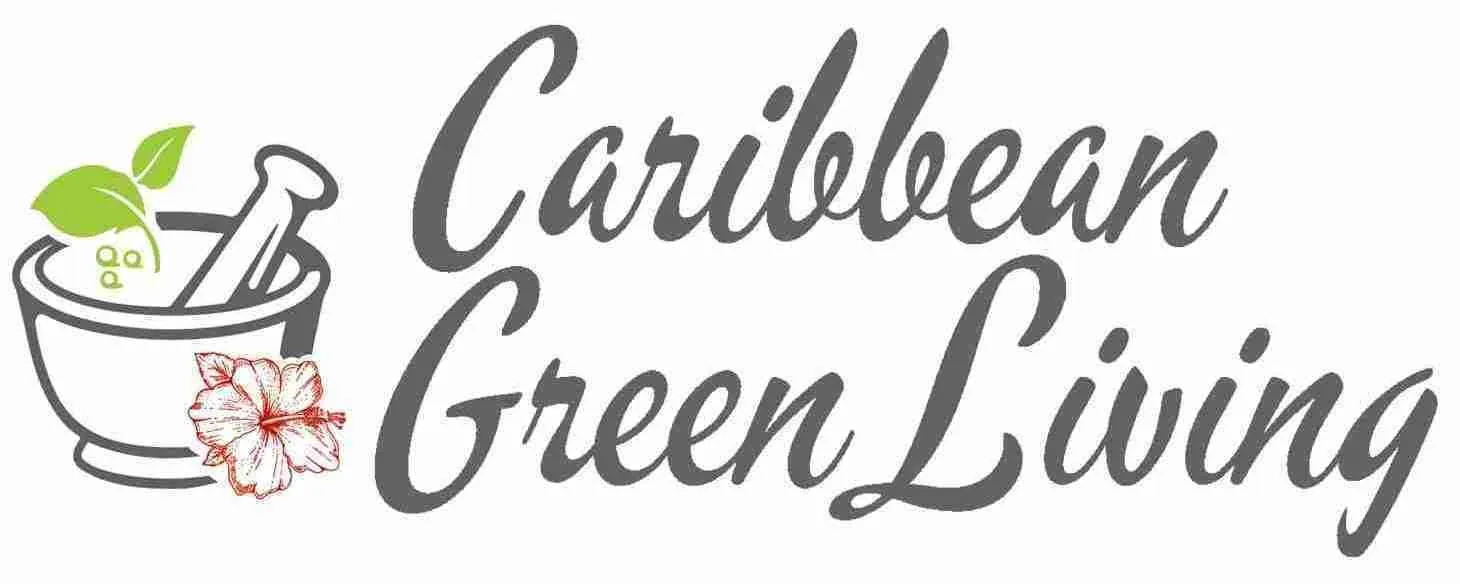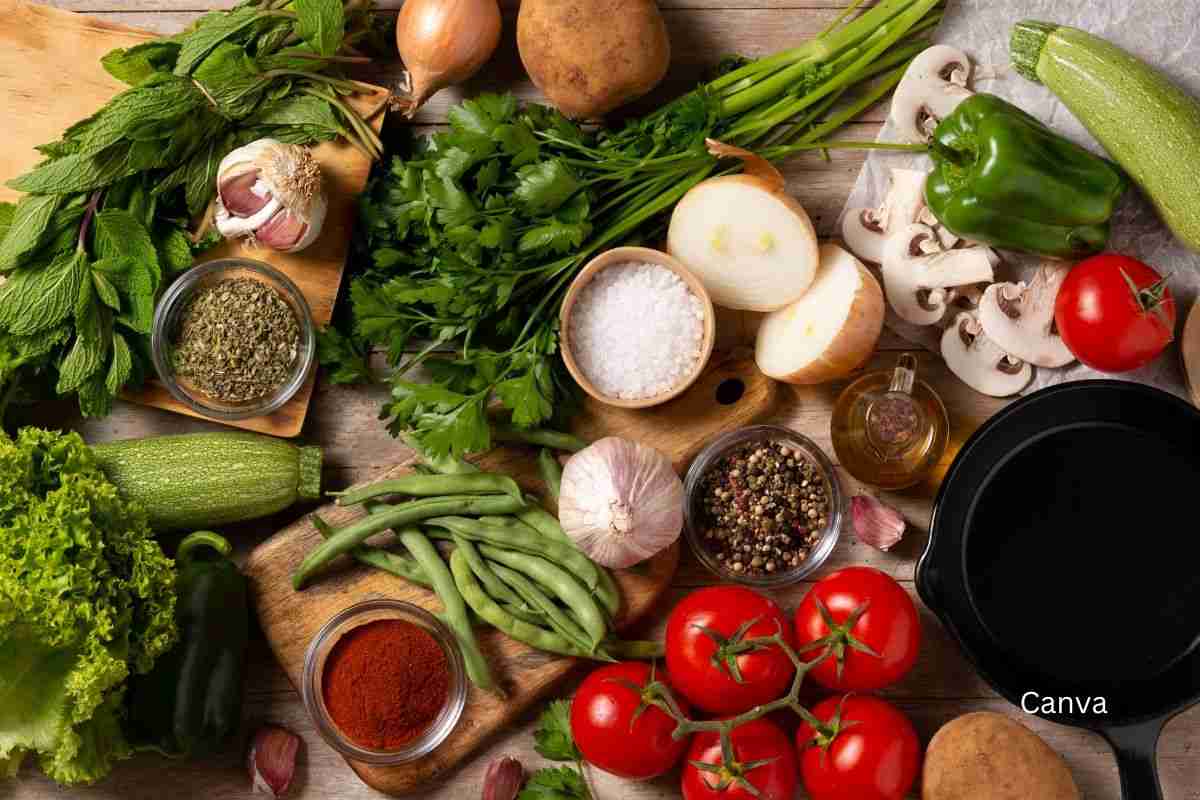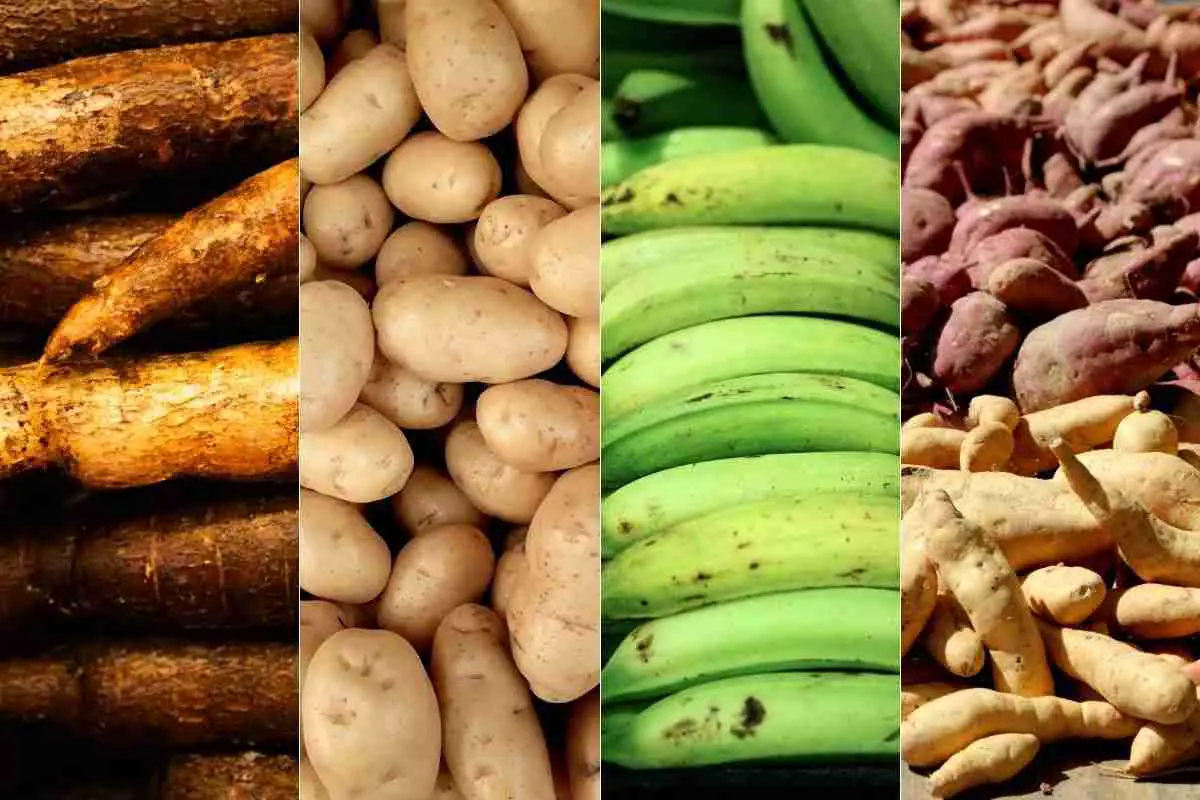Common Caribbean Herbal Teas
Herbal teas have long been a staple in Caribbean households, cherished for their natural health benefits and comforting flavors. These traditional brews, often made from locally sourced plants, are integral to the culture and daily life of islanders.
Common Herbal Teas Used by Caribbean Islanders
Lemongrass Tea, often called Fever Grass Tea, is a fixture in Caribbean homes. This tea is typically prepared by boiling the long, slender leaves for about five minutes. Once strained, it can be enjoyed hot or cold, sweetened or unsweetened. It’s used to help reduce fevers, ease headaches, and improve digestion.
Hibiscus Tea is another popular Caribbean beverage, often enjoyed for its tart, floral flavor. Made from the dried calyces of the hibiscus flower, this tea is known for its potential health benefits, including lowering blood pressure and improving heart health. To make hibiscus tea, simply steep the dried flowers in hot water for a few minutes. It can be enjoyed hot or cold, and is often sweetened with honey or sugar.
Ginger Tea stands out with its strong, spicy flavor. Fresh ginger root is sliced thin or grated and boiled for around ten minutes. Some add lemon or honey to temper the heat. This tea is valued for its anti-inflammatory properties and is relied on to treat nausea, soothe digestive issues, combat colds, and reduce muscle pain.
Cerasee Tea, or Bitter Melon Tea, is known for its strong taste but powerful health benefits. The leaves and vines of the cerasee plant are boiled for about 15-20 minutes. It’s used for detoxifying the body, managing diabetes, and lowering blood pressure.
Peppermint Tea is enjoyed for its cool, minty flavor. Fresh peppermint leaves are steeped in hot water for about ten minutes. This tea is often used for relieving headaches, aiding digestion, and soothing cold symptoms.
Soursop Leaf Tea is made by boiling the leaves of the soursop plant for about 15 minutes. It’s frequently used for its potential to help with insomnia, inflammation, and respiratory issues.
Bay Leaf Tea, made by boiling fresh or dried bay leaves for around 10-15 minutes, is used to ease indigestion, treat colds, and reduce menstrual pain. Some use it to manage blood sugar levels and improve overall digestion.
Neem Leaf Tea is valued for its antiviral and antibacterial properties. The leaves are boiled in water for a strong, bitter tea that’s often sweetened with honey. It’s used to detoxify the body, boost the immune system, and promote skin health.
Each of these teas reflects the resourcefulness and deep traditional knowledge of Caribbean islanders, using readily available plants to support health and well-being.
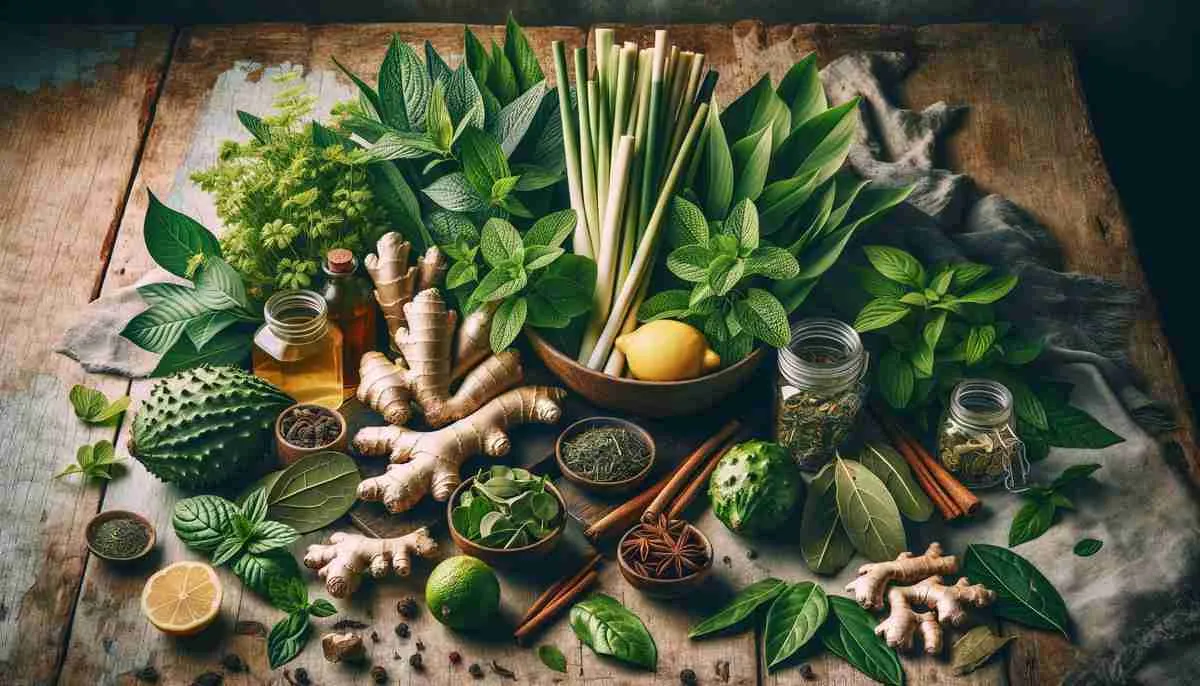
Traditional Preparation Methods
Boiling and steeping are essential to traditional preparation methods for Caribbean herbal teas. These time-honored techniques bring these teas from garden to cup:
- Lemongrass Tea: Fresh leaves are washed and tied into a knot before boiling for about five minutes. Some enhance the taste with lime or honey, particularly when serving cold.
- Hibiscus Tea: Fresh hibiscus flowers are washed and added to a pot of boiling water. Steep for 5-10 minutes, then strain. For a sweeter taste, add honey or agave nectar. Serve hot or cold, and garnish with fresh hibiscus flowers for a touch of elegance.
- Ginger Tea: Peeling and thinly slicing or grating fresh ginger root, then simmering it in water for around ten minutes. Some add lemon juice, honey, cinnamon, or cloves for extra flavor and benefits.
- Cerasee Tea: Thoroughly washing fresh leaves and vines, then boiling for 15-20 minutes. Some add a small amount of sugar or honey to ease the bitterness, but many drink it as is.
- Peppermint Tea: Fresh leaves are hand-picked and steeped in freshly boiled water for about ten minutes. It’s often sweetened with honey, especially for younger family members.
- Soursop Leaf Tea: Selecting tender, young leaves, washing them, and boiling for about 15 minutes. Some add ginger for a slight kick, especially when combating cold symptoms.
- Bay Leaf Tea: Can be made with fresh or dried leaves, rinsed and boiled for 10-15 minutes. It’s sometimes combined with cloves or cinnamon for added flavor and health benefits.
- Neem Leaf Tea: Made by boiling young, tender leaves for 15-20 minutes. Given its intensity, adding honey is common to enhance palatability.
These preparation methods are more than mere techniques; they are rituals passed down through generations, firmly rooted in the daily lives of islanders.
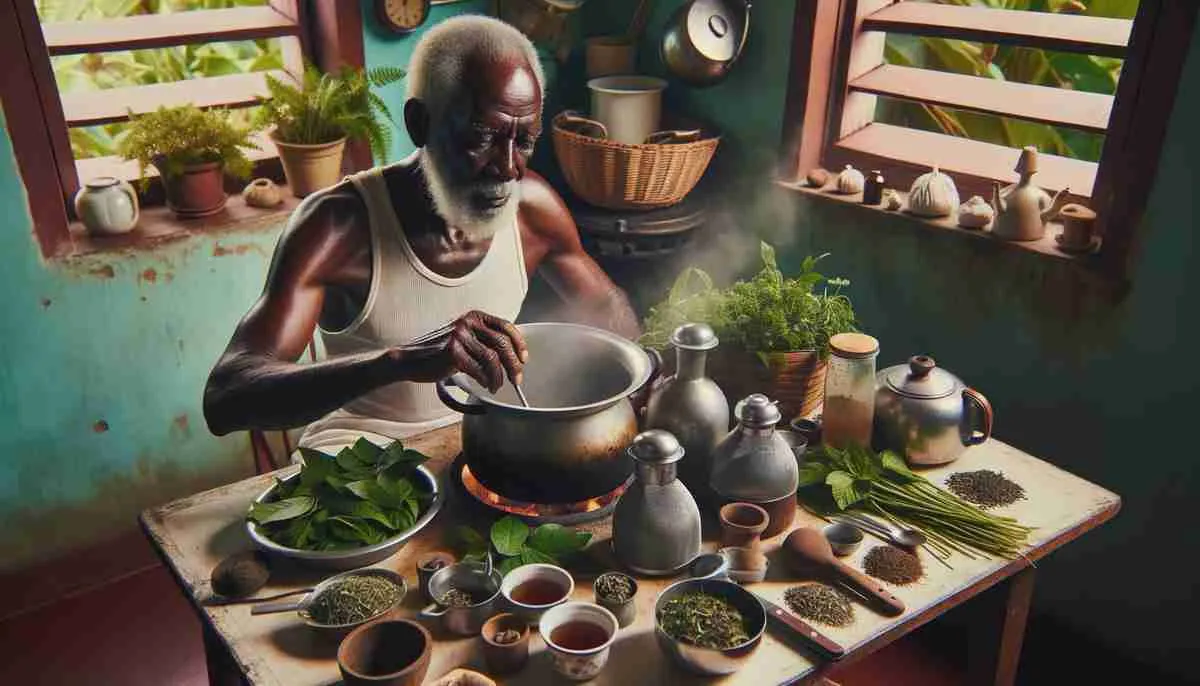
Medicinal Uses and Health Benefits
| Tea | Health Benefits |
|---|---|
| Lemongrass Tea | Reduces fevers, alleviates stress and anxiety, aids digestion, promotes kidney health and detoxification |
| Hibiscus Tea | Detoxification, manages diabetes, maintains healthy skin, and reduces high blood pressure. |
| Ginger Tea | Reduces muscle pain, treats nausea, enhances digestion, alleviates cold and respiratory issues |
| Cerasee Tea | Detoxification, manages diabetes, maintains healthy skin, and reduces high blood pressure. |
| Peppermint Tea | Alleviates headaches, calms the digestive system, reduces cold symptoms, clears nasal congestion |
| Soursop Leaf Tea | Relieves insomnia, reduces inflammation, supports respiratory health, potentially fights certain types of cancer cells. |
| Bay Leaf Tea | Rich in vitamins and minerals, relieves indigestion, treats colds, manages menstrual pain, supports heart health. |
| Neem Leaf Tea | Boosts the immune system, detoxifies the body, manages blood pressure and sugar levels, promotes skin health |
These herbal teas offer a wide range of health benefits, reflecting their significant role in Caribbean daily life and traditional medicine. By harnessing the natural properties of local plants, these teas continue to enrich lives with every brew.1
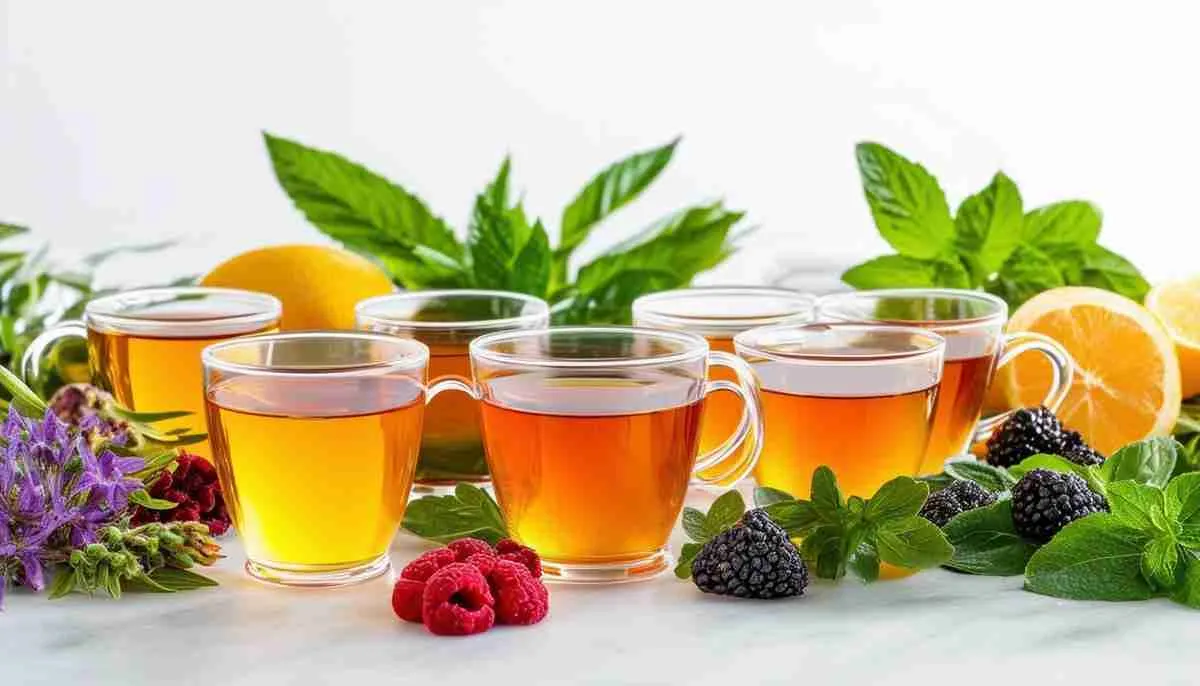
The herbal teas of the Caribbean offer more than just soothing drinks; they embody generations of wisdom and tradition. Each cup represents the resourcefulness and deep knowledge that islanders have cultivated over time, providing not only delightful flavors but also numerous health benefits that support overall well-being.
“In every cup of Caribbean herbal tea, there’s a story of heritage, healing, and the harmony between people and nature.”
- Picking R, Younger N, Mitchell S, Delgoda R. The prevalence of herbal medicine home use and concomitant use with pharmaceutical medicines in Jamaica. J Ethnopharmacol. 2011;137(1):305-311.
